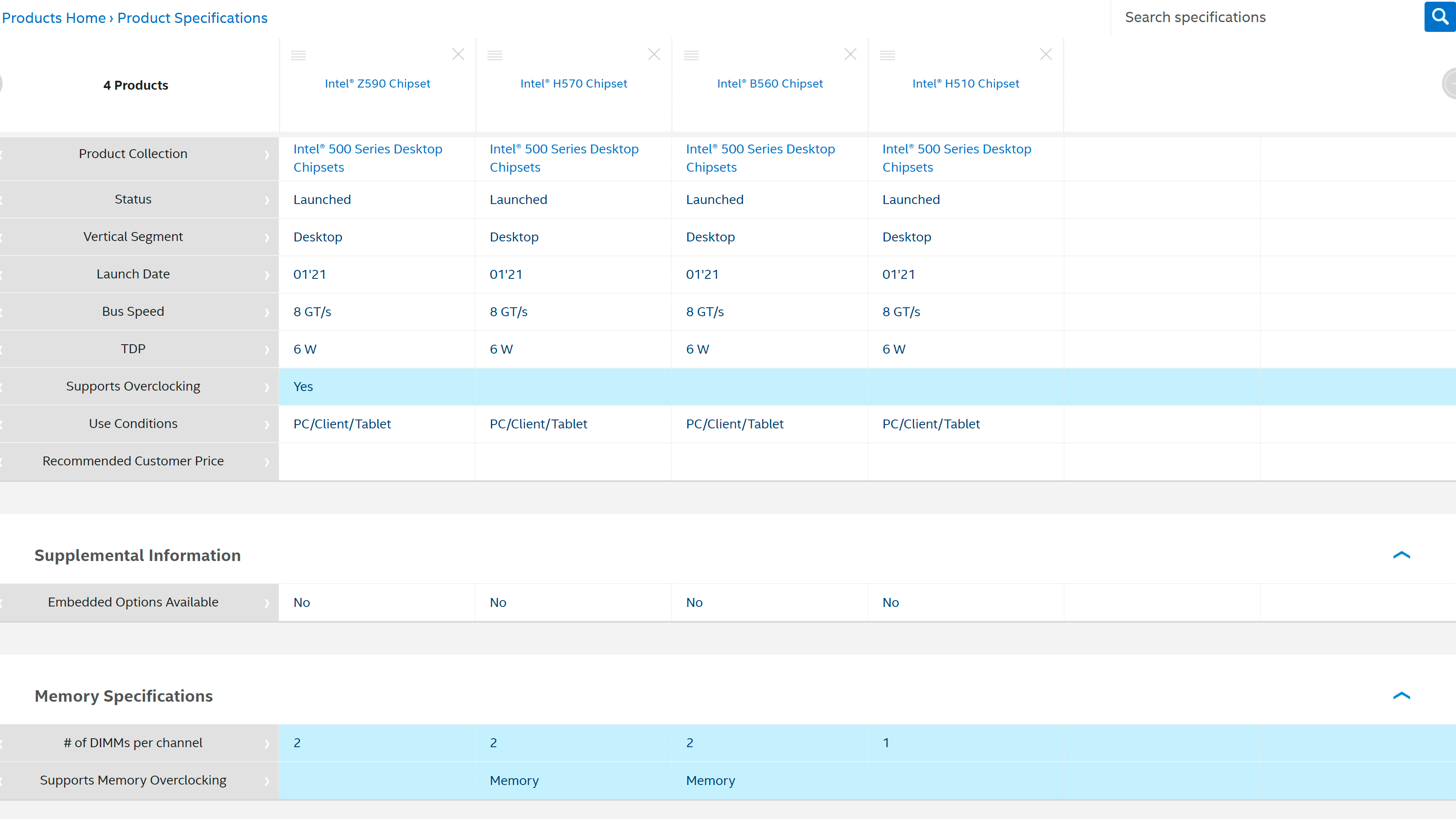Intel Enables Memory Overclocking On H570 and B560 Chipsets
With its 500-series chipsets, Intel has finally broken tradition and enabled memory overclocking on a non-Z chipset. For this generation, motherboards that leverage the H570 or B560 chipset will allow consumers to use memory that's faster than the official supported specification for Rocket Lake-S.
Intel's latest move may look insignificant for AMD owners, as AMD was always more accomodating with memory overclocking on its budget chipsets, such as the A-or B-series. Before the 500-series chipsets came along, Intel owners only had access to memory overclocking on the flagship Z-series chipset. It took Intel long enough, but it's nice to finally see the chipmaker opening the door for the pocket-friendly chipsets.
For Comet Lake-S, Intel utilized a two-level scheme for memory support. The Core i9 and Core i7 SKUs natively support DDR4-2933, while the Core i5 and below tiers are limited to DDR4-2666. Therefore, H470 and B460 chipsets were restricted to DDR4-2933 support.
ASRock's Z590 Taichi product page (via momomo_us) suggests that Intel is employing a similar tactic with Rocket Lake-S. The description for memory support reads "11th Gen Intel Core™ (i9/i7/i5) support DDR4 up to 3200; Core (i3), Pentium and Celeron support DDR4 up to 2666."
An early rumor suggested that the 11th Generation branding housed both Rocket Lake-S and Comet Lake Refresh chips. ASRock's lettering supports this theory. The Core i9 to Core i5 models are Rocket Lake-S chips that support DDR4-3200, and the remnants are Comet Lake Refresh chips that do DDR4-2666, the same as the existing generation.
The H570 and B560 chipsets now support memory overclocking (memory above DDR4-3200), but you still need to pair the respective motherboard with a Core i5 and above processor. Core i3 and below still stick to DDR4-2666. It's not the full mile, but it's something nonetheless. In the past, pairing a Core i9 chip on an H-or B-series chipset meant you were locked out from using faster memory.
Get Tom's Hardware's best news and in-depth reviews, straight to your inbox.

Zhiye Liu is a news editor, memory reviewer, and SSD tester at Tom’s Hardware. Although he loves everything that’s hardware, he has a soft spot for CPUs, GPUs, and RAM.
-
InvalidError The most deplorable thing about "supporting"memory overclocking on B/H-series boards is that since the memory controller is in the CPU, the chipset plays no real role in memory support capability besides as a fully arbitrary (un)lock.Reply -
hotaru251 ReplyIntel has finally broken tradition and enabled memory overclocking on a non-Z chipset
its so good to see AMD making Intel change its ways. -
logainofhades Better, but still not enough. CPU shouldn't dictate how fast of ram you can run. The budget crowd is still going to be better off going with a Ryzen 3, and faster ram, vs an i3, with slower ram. That is, of course, once things return to normal stock levels.Reply
